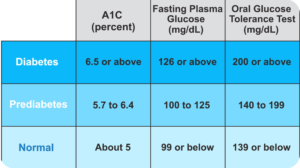Fitness recommendations from a variety of sources have long coupled advice for total number of daily steps walked, with the need to achieve that goal “briskly”—at a pace of high intensity. Various definitions have been offered for what qualifies as intensity in exercise, but the notion itself may be flawed given new research. At least when it comes to walking.

A group of researchers, including experts from the NIH’s National Cancer Institute (NCI) and National Institute on Aging (NIA), and the Centers for Disease Control and Prevention (CDC), combed through available data on from a sample of adults older than 40, who used an accelerometer (measuring both step count and “cadence,” or intensity of walking pace) throughout their waking hours. The researchers found that the number of steps is more important than walking intensity.
The research also revealed that the often-stated goal of 10,000 steps per day is not necessarily a relevant baseline. In fact, any amount over 4,000 steps per day seems to confer significant health benefits.
How to Get Your Steps In
Counting steps has long been a popular way to track fitness. Not only is this the most common exercise humans get, it’s also inevitable in any given day, and easy to track. Of course, that assumes you accurately count your steps. Here are some guidelines to consider.
- Use Trustworthy Trackers. If you’ve opted to use your smart phone’s native health app, don’t be surprised if your count step seems low. Smart phones are not designed primarily as fitness wearables. How you walk, and where the phone is placed on your person, may affect step count. Better to use a wrist-mounted fitness tracker or, best of all, a pedometer or accelerometer.
- Count the Total Day. You don’t have to get all your steps in at once, nor do only steps on a dedicated “walk” count. Steps from the far reaches of a parking lot to the pharmacy, or taking your dog around the block are just as valid.
- Shoot for 4k to 8k. Depending on whether you live in a flat or hilly region, the steps you take may be more or less strenuous. Use your judgement for what is reasonable for you. The 10,000-step goal can be a self-defeating high bar for those who walk slower or have to trudge up inclines. Maintain a daily regimen of between 4,000 and 8,000 steps and you are earning a fitness gold medal.
Keep in mind that if you’ve decided a daily walking regimen is your cup of tea, consult your primary caregiver before starting that regimen. As with any workout routine, it’s important to avoid activity that could make existing physical disorders (such as arthritic knees or hips) worse. Once you get your practitioner’s green light, walk to your heart’s content … and benefit!





